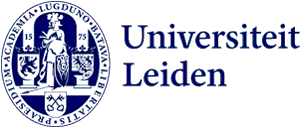
‘An internship at Foreign Affairs is an incredible experience and a good way to boost your career’
Niels van Leeuwen is enrolled in the Master Public Administration: Economics & Governance. During the first stage of his master, he did an internship in the United States, at the economic affairs department of the Royal Netherlands Consulate General in Chicago. ‘There are more ways that lead to Rome.’
What exactly are the tasks of the consulate?
Niels: ‘The consulate in Chicago is divided in two sections. There is the actual consulate section, that’s mostly made up of economic officers. These are people tasked with economic portfolios. In Chicago these include among others automotive, agriculture and life sciences in health. Then there’s also The Netherlands Foreign Investment Agency (NFIA). They’re actually part of Economic Affairs and mostly work on getting American companies and investors to come to the Netherlands. The consulate itself focusses on the opposite; they enable Dutch companies to come to the US. ‘The tasks of a mission really depend on the country and the region they’re in.’

How did you come across this internship?
‘I was trying to figure out if I wanted to take part in the ‘Diplomats’ class’, that is the development and career track to become an international policy officer at Foreign Affairs. I hoped to be able to find out by doing an internship. Each day at 00.00 hours, I started looking for internship vacancies on 'werkenvoornederland' as soon as they were published. I proceeded to apply for a number of vacancies and got lucky with this one. I found out afterwards that most interns applied for multiple vacancies. It’s really more like taking random shots at all the things that interest you then focusing on applying for one specific internship.’
What does the application procedure look like?
‘That’s different for each mission. In my case, all I needed to do was sent in my resumé and a motivation letter, followed by an interview. But the Consulate General in Chicago demanded that you also handed in two letters of recommendation and prepared a case. So, I was invited for an interview and the conversation mostly focussed on the portfolios to test my knowledge on the topics. They also asked about my English and my strengths and weaknesses. When I was accepted, things happened really fast: I had to look for a room and apply for a visa.’
How did you prepare for the interview?
‘First and foremost, by making sure my resumé and motivation letter looked professional. Everything must be in order, without any typos, and have a good layout. I also prepared by carefully studying the vacancy text, so you understand what the position is about and what they’re looking for.’
When you were accepted, what were your responsibilities?
‘The first three months, I was working on a trade mission. I was looking for hotels, organising activities, providing assistance. The next three months were more regular 9-to-5, where you spend most of your day at the office. I spent a lot of time on researching the market for electric vehicles in the Mid-West as part of my portfolio and possible opportunities for the Netherlands. But every day is different.’
So, you were really treated as an employee?
‘Yes, I wasn’t expected to get coffee all the time, haha! I also had my own business cards, was allowed to interview CEOs and I was able to meet the mayor of Chicago. So, you’re really part of the team and I was required to perform all kinds of tasks, take the trade mission for instance. As part of the consulate, you’re actually representing the Netherlands. Despite having an important job, you’re also part of a group of Dutch people stationed abroad. It truly is an incredible experience and a good way to boost your career.’
Did the internship help you figure out if you want to take part in the ‘Diplomats’ class’?
'Yes and no. I’m still very interested in the diplomats’ class, but I also found out that you can always apply for a mission abroad. Without the diplomats’ class, it might be a bit more difficult to become an ambassador or consul, but you also have more freedom. Taking part in the class is a way of life, really. I will apply, but if I’m not selected, I’m OK with that. ‘There are more ways that lead to Rome.’
Text: Abdelkarim Megaiz
